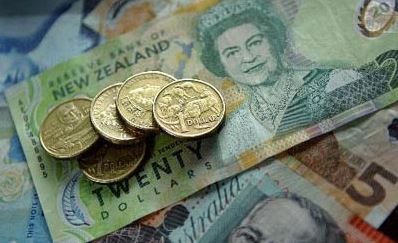Some people are born savers, they are great at it, stashing away every unspent cent to create a monster of a nest egg for the future. Then there are those of us that are not so good, frittering away all our expendable income month by month into the consumer abyss of morning coffees, nights out, takeaways, treating the kids and entertainment only to reach the end of every month with a little spare change to save. Whatever category you fit into there is always room for improvement and with this selection of clever little tactics, anyone can increase their savings potential.
Let’s start with the small tactics.
Little changes
1. Big change in a dish, little change in a jar.
We are certainly not trying to reinvent the wheel with this one, but just to improve the idea of something you are probably already doing. A lot of people already have a change jar, a place where they empty their pockets of shrapnel once in a while. The problem is that the jar rarely ever gets full as it is dipped into regularly for dinner money, bus fares or a variety of other small discretionary fees. What we are proposing here is that you leave yourself a dish for your ‘big change’, and a separate jar for your ‘little change.’ The big change is likely to be dipped into but whatever is left over each week should be tipped into the little change jar and forgotten about until the jar is full. The little change jar is for all your low value coins, not for dipping and will only continue to grow until it is ready to empty into your savings account. This won’t make you a millionaire but it will add more value to your savings.
2. Learn to say no
Forego a luxury or treat once in a while and stick the money you would have spent into your savings. For example, say you finish work on a Friday and really want a takeaway pizza and few tins of beer. Instead spending the $20-$30 it would cost you for this, make yourself a much cheaper meal for $2 or $3 and stick the rest of what you would have spent into savings. Do this once a month and this alone would save you around $240 - $360 over the year.
3. Small regular rather than large periodic payments.
Save a little automatically and at short intervals. It could be easier to save say $20 a week rather than $80 per month. This is because if you are paid monthly, if you wait until month end to save you might not have the $80 left to stash away after all your discretionary spending. Put a little aside each week in an automatic payment and you will waste less money on discretionary spending and not feel the burden of putting away so much money in one go.
4. Save at the start of the month, not the end
Much like the point above, if you save at the start of the month before you have squandered all your expendable cash, you will be far more successful at meeting your savings goals, and not as likely to waste your money on items you can do without. Calculate how much you need to meet your monthly essentials and your bills, a little for luxuries and setup an automatic payment to put the rest into savings just after payday, not at the end of the month.
5. Stop hoarding, start selling
Don’t hoard old stuff just because you ‘might’ use it again. If you have things in storage for over a year that you have not really missed or thought about in that time, then you don’t really need them. Sell it and make a return on it, this is far more useful than hoarding things you don’t need. Put those funds into savings that can be far more useful when you need them.
Managing what you have
Keep making 'Payments' after paying off a debt
What do you do with that monthly payment money once you have finished paying off a credit card or a loan? Here’s what you do, pay it to yourself by keeping the payment going but straight into your savings account rather than a creditor. You already know you can live comfortable without the funds each month as you have been doing so while paying off your debt.
What to do with a pay rise
If you’re lucky enough to get a pay rise from work, don’t’ go on a spree and consume all that extra cash, consider acting like there has been no change to your finances. Rather than increasing your spending to match your new wage, as above you already know you can live on what you have been earning to date. Stick to the smaller budget you are used to and that you know you can live on, and stick the extra money from your pay rise straight into savings.
Like I stated earlier in the article, we are not trying to reinvent the wheel here, it’s all about being clever, thinking outside the box, managing expectations and behaviour. If you can incorporate some of these steps into your savings plan, you could find your nest egg increase at a far better rate.




